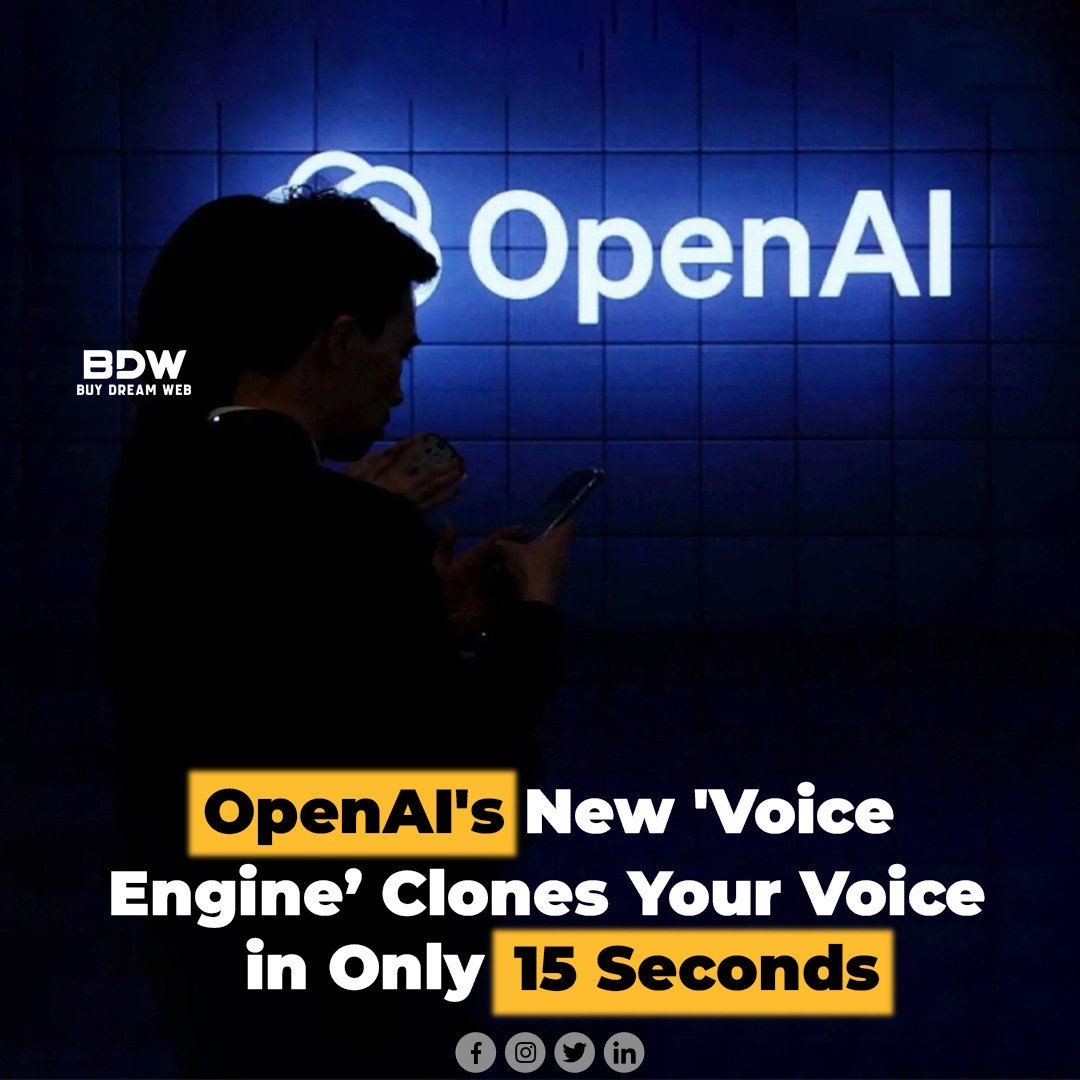The Mimic in the Machine: OpenAI’s Voice Engine and the Future of Voice Cloning
The world of artificial intelligence (AI) continues to push boundaries, and OpenAI’s recently unveiled “Voice Engine” is no exception. This innovative tool boasts the ability to clone a person’s voice with just a 15-second audio sample. While this technology holds immense potential, it also raises concerns about ethical implications and potential misuse. Let’s delve deeper into the capabilities of OpenAI’s Voice Engine. Explore the potential benefits and drawbacks, and analyze the broader conversation it sparks about the future of voice technology.
A Voice from a Short Sample: Unveiling OpenAI’s Voice Engine
OpenAI’s Voice Engine utilizes machine learning to achieve its voice cloning feat:
- Deep Learning Techniques: The engine is likely powered by deep learning algorithms trained on massive datasets of voice recordings. These algorithms learn to identify and replicate the unique characteristics of a human voice.
- 15 Seconds is All It Takes: Just 15-second audio sample, potentially short message, enough for Voice Engine to generate synthetic speech that closely resembles original voice.
- Text-to-Speech on Steroids: The Voice Engine can be integrated with text-to-speech (TTS) systems, allowing users to type text and have it spoken in cloned voice.
A World of Possibilities: The Potential Benefits of Voice Engine
OpenAI’s Voice Engine offers a range of potential benefits:
- Accessibility Tools: This technology can be a boon for people who have lost their voices due to illness or injury. Allowing them to communicate using their own synthesized voice.
- Enhanced User Experiences: Voice Engine could personalize user experiences by enabling devices and applications to speak in a user’s preferred voice.
- Educational Applications: Language learning applications could leverage voice cloning to create immersive learning experiences with native-sounding pronunciations.
The Other Side of the Coin: The Ethical Concerns of Voice Cloning
Despite its potential benefits, voice cloning technology raises significant ethical concerns:
- Weaponizing Deepfakes: Malicious actors could use Voice Engine to create deepfakes – realistic audio forgeries – to spread misinformation others for nefarious purposes.
- Privacy Violations: Without proper safeguards, voice cloning technology could be misused to violate someone’s privacy by creating unauthorized copies of their voice.
- The Erosion of Trust: The widespread use of voice cloning could erode trust in spoken communication, it becomes difficult to distinguish between genuine and synthetic voices.
A Call for Open Dialogue: Navigating the Future of Voice AI
The development of OpenAI’s necessitates an open dialogue about the responsible use of this technology:
- Regulation and Oversight: Clear regulations and oversight measures are needed to prevent the misuse of voice cloning technology for malicious purposes.
- Transparency and User Control: Users should have clear information about when their voices being used and have control over how their voice clones utilized.
- Focus on Beneficial Applications: The development of voice cloning technology should prioritize applications that benefit society, such as accessibility tools and educational resources.
The Final Word: A Powerful Tool, A Shared Responsibility
OpenAI’s represents a significant leap forward in AI-powered voice creation. While the potential benefits are undeniable, the ethical considerations demand careful attention. Moving forward, it’s crucial for developers, policymakers, and users to work together to ensure this powerful tool is used ethically . By fostering open dialogue and prioritizing responsible development, we can harness the potential of voice cloning technology to create a future where synthetic voices empower communication and enhance user experiences, without compromising privacy or eroding trust.
I hope you will love this blog!
Article Link: https://interestingengineering.com/

 +44 747720 4635
+44 747720 4635


Comments are closed